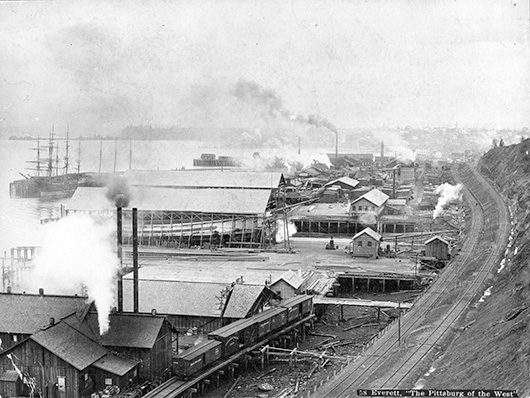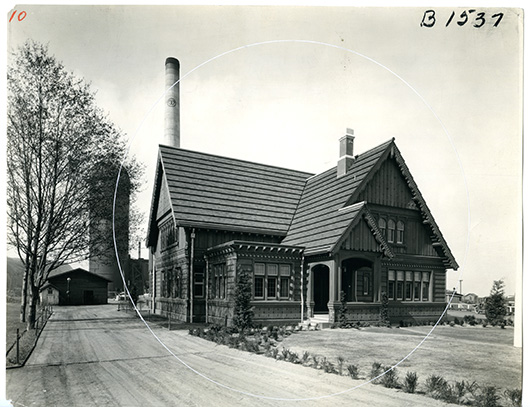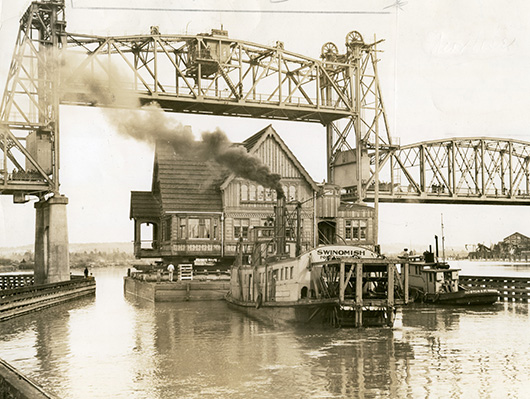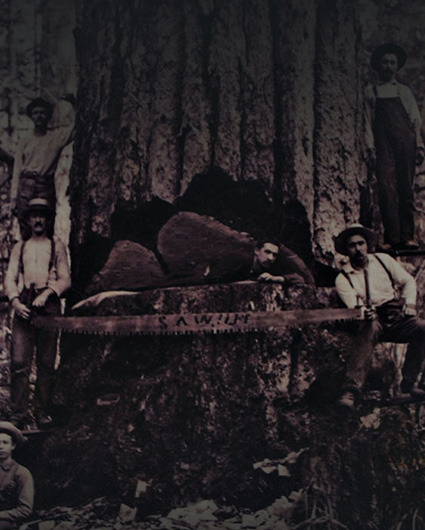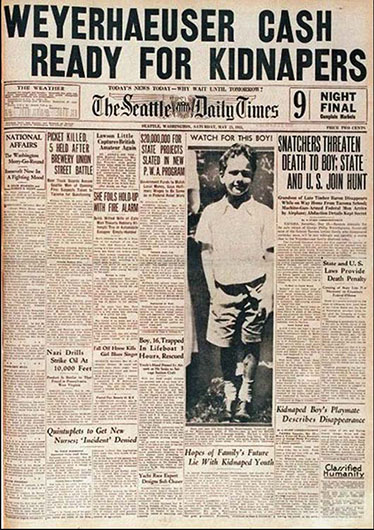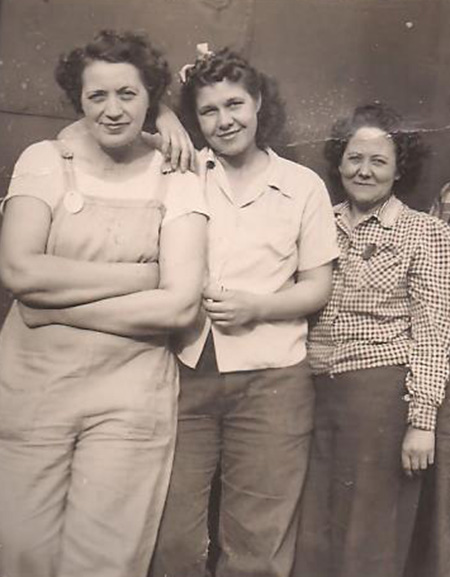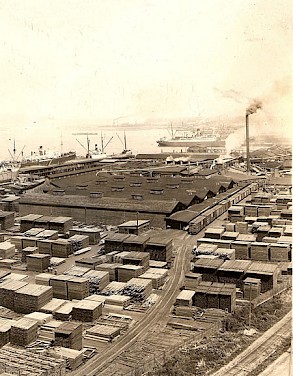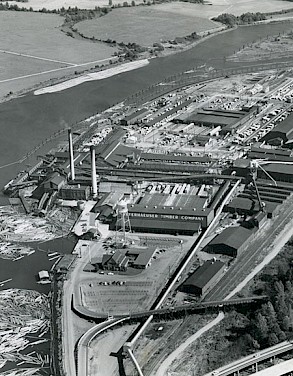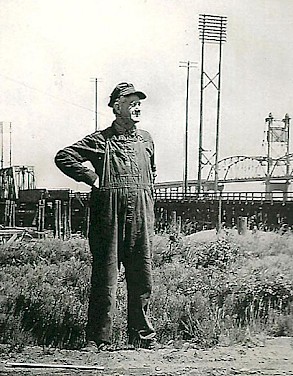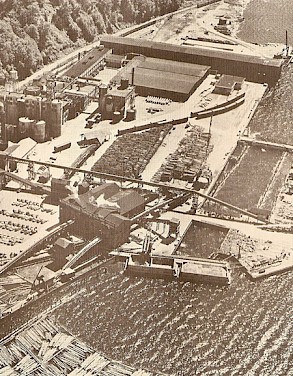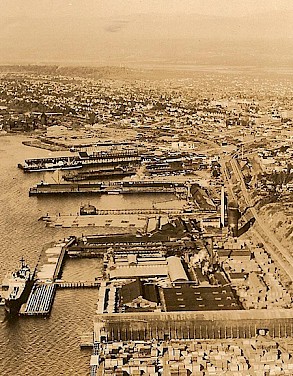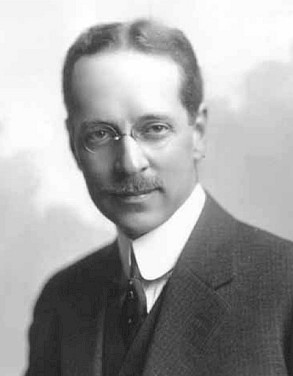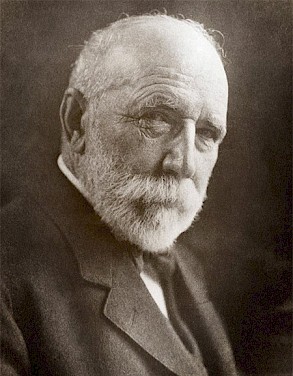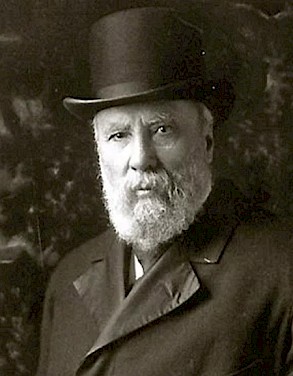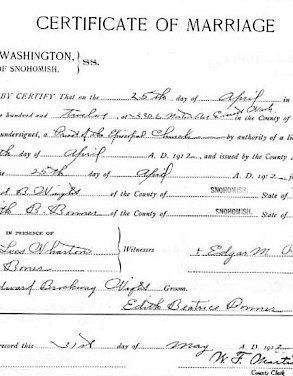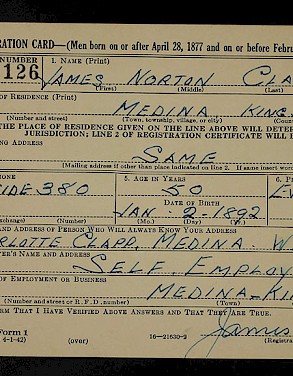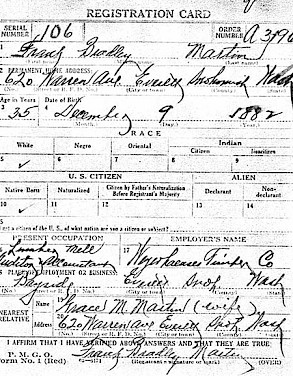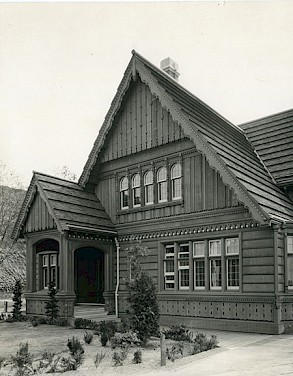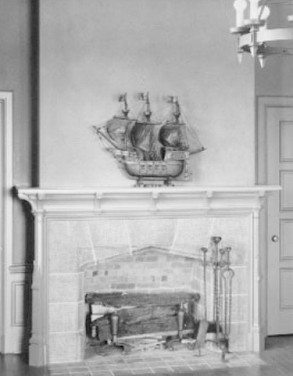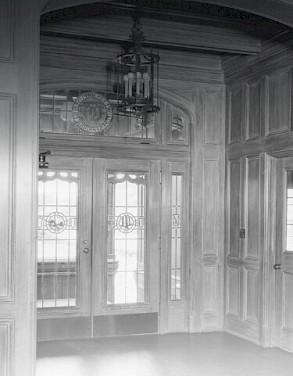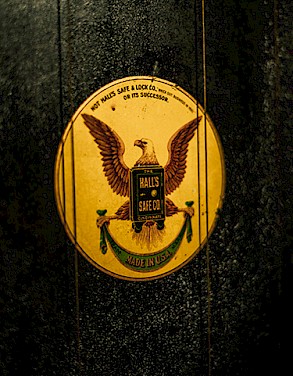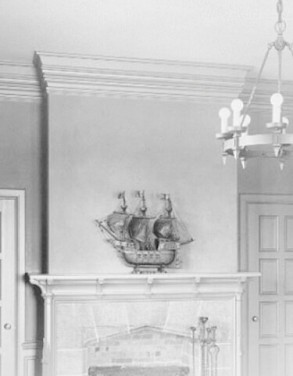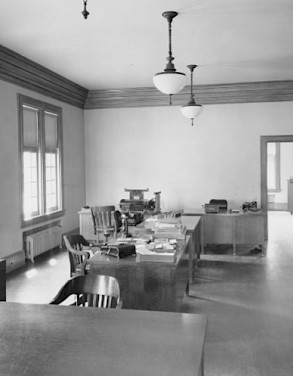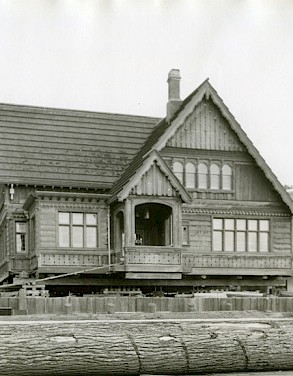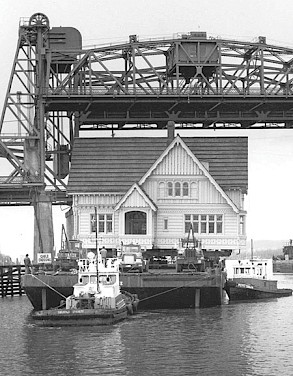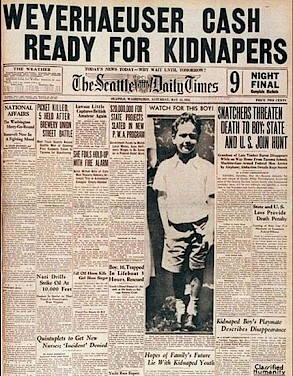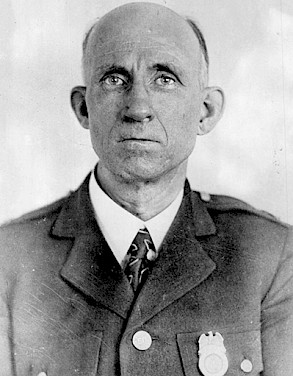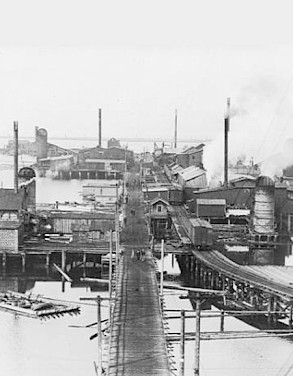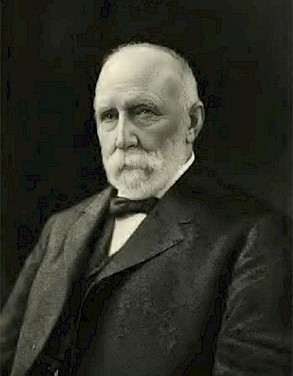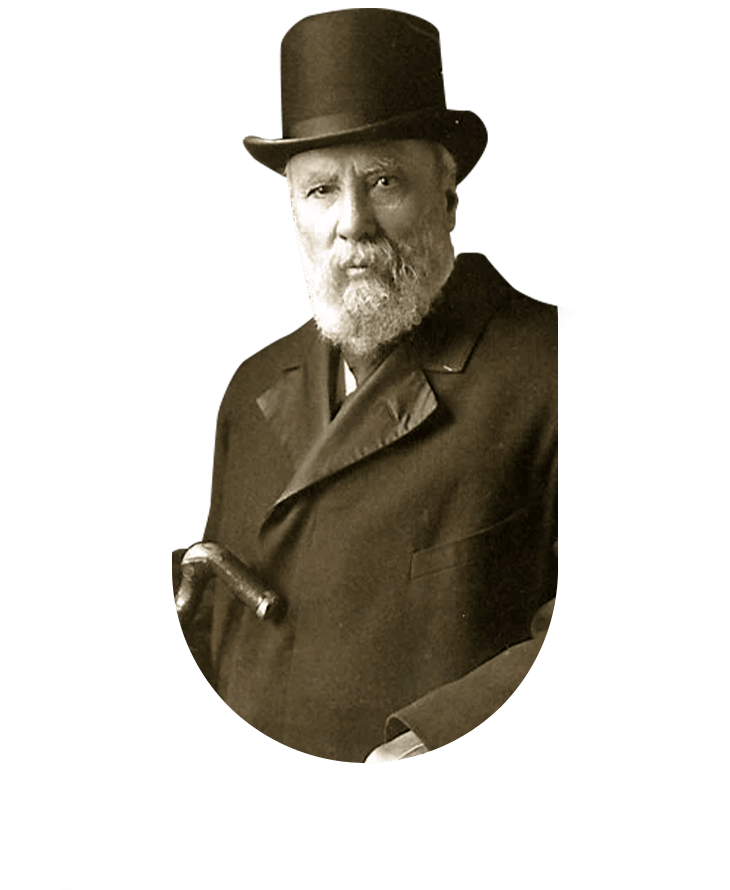

James Jerome Hill (1838-1916) was a mogul of the Great Northern Railroad credited with bringing the Weyerhaeuser Timber Company to Everett. Nicknamed “The Empire Builder,” Hill rose from a docks clerk to a railroad magnate.
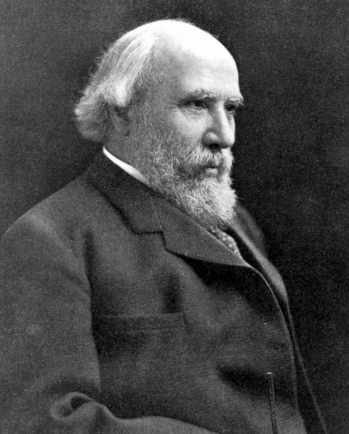
The Birth of a Legend.
James Hill was born Sept. 16, 1838, in Eramosa Township, Upper Canada to Irish immigrant parents. When he was 9, Hill suffered a bow-and-arrow injury that blinded him in his right eye.
In Holy Matrimony.
Hill married Mary Theresa Mehegan in 1864. Their nine children were Mary, James, Lewis, Clara, Charlotte, Ruth, Rachel, Gertrude and Walter.
A New Home.
After leaving home in Canada in 1865, Hill worked as a clerk on the St. Paul levee for the J. W. Bass & Company.
Business on the River.
In 1869, Hill resigned his clerkship and formed his own river steamship company. Hill, Griggs, and Company warehoused and shipped goods on the Mississippi and Red rivers. Hill worked to build up St. Paul’s coal industry, encouraging the St. Paul & Pacific Railroad and the Milwaukee Railroad to switch from wood to coal.
With the profit made from selling coal, Hill turned his sights on railroads.
He bought the financially troubled
St. Paul & Pacific Railroad.
In 1899, he renamed it the Great Northern Railway.
At the time of its bankruptcy, he purchased the
Northern Pacific Railroad.
He added the
Burlington Railroad
to his collection in 1901.
Hill laid rails at a rate of a mile a day at an average cost of
Leaving a trail of farms and homesteads along the way – the foundation for his coming Pacific Northwest empire.
A Timber Sale for the Books.
In 1900, Hill worked to build up Everett’s lumber industry, selling Frederick E. Weyerhaeuser, his neighbor in St. Paul, timberlands that were in Northern Pacific Railroad control.
Sale Included
acres of timberlands under Northern Pacific Railroad control
Purchase Price
about $6 per acre
With the sale, the Weyerhaeuser Timber Company was formed.
An International Steamship Company.
In 1900, Hill also formed the Great Northern Steamship Company to ship goods between Seattle and Yokohama and Hong Kong.
Hill was the first to link the Pacific Northwest with the Pacific Rim in economic development.
“The Empire Builder” was one of the richest Americans of his time.
Hill paid himself no salary from his railroad.
It is estimated that at the time of Hill's death, he was worth over $53 million.
His net worth today is
by a 2023 estimate
Achievements After Retirement.
In his retirement, Hill was the keynote speaker at the Alaska-Yukon-Pacific Exposition in Seattle in 1909. In 1910, he published “Highways of Progress,” a book on farm methods, trade and the nation’s future.
Three years after retiring from the railroad business, Hill bought the First National and Second National banks of St. Paul. He reorganized them as the First National Bank of St. Paul.







